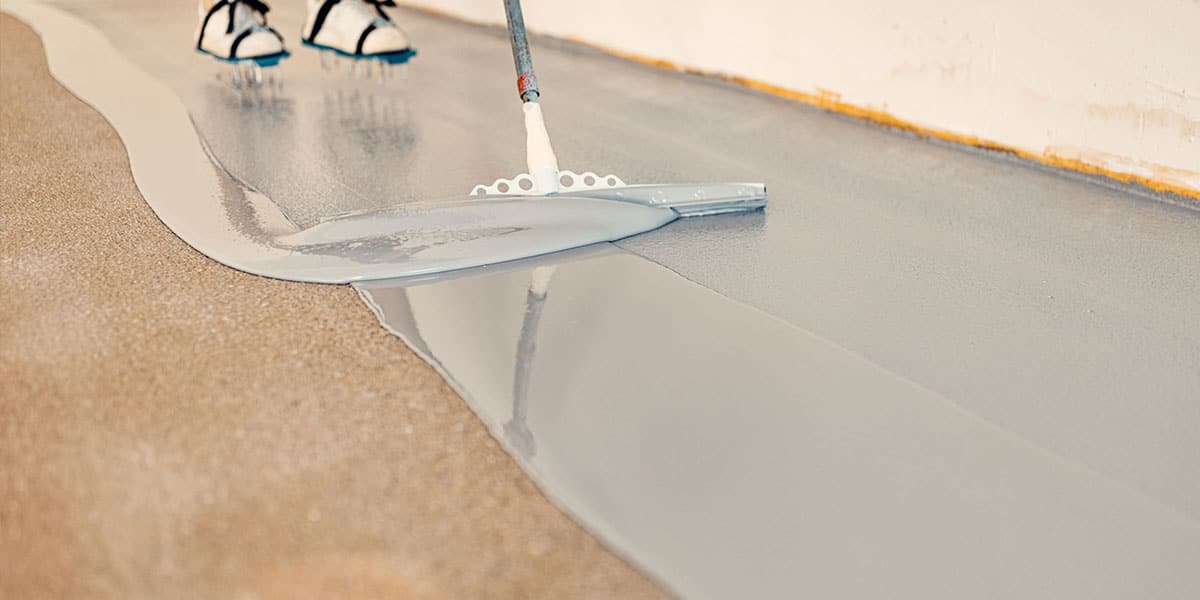Ensure Safety with Premier Non-Slip Flooring Perth
2-Year Product & Workmanship Warranty
Non Slip Flooring Adaptable to Different Perth Settings
With Perth’s occasional rainy weather and the risk of slips and falls, non-slip flooring solutions are indispensable. These surfaces are engineered to provide traction and reduce the chances of accidents.
Available in various materials like rubber, vinyl, and textured tiles, they’re adaptable to different settings such as kitchens, bathrooms, and public areas.
Prioritising non slip flooring ensures a secure environment, safeguarding loved ones at home and preventing liabilities in businesses. Choose safety flooring, and enjoy peace of mind at every step.
How do I know if I need non slip flooring?
Free Quotes Within 48 Hours
- Safety Concerns: If you have concerns about slips and falls due to wet or slippery surfaces in your home or business, this can be a proactive solution.
- High-Traffic Areas: Areas with high foot traffic, such as bathrooms, kitchens, entryways, and commercial spaces, are more prone to accidents, making non-slip flooring a wise choice.
- Wet or Humid Climate: Occasional wet weather and humidity can create slippery conditions, making slip resistant flooring a practical choice to mitigate risks.
- Aging Population: If your home or business caters to elderly individuals or those with mobility issues, this type of flooring can enhance safety and accessibility.
- Compliance Requirements: Certain regulations or safety standards may mandate slip resistant flooring in specific environments, such as commercial kitchens or healthcare facilities.
- Past Incidents: If you’ve experienced slip-related accidents in your space, it’s a clear indicator that non slip floor is necessary to prevent future mishaps.
By assessing these factors and considering the safety of occupants, you can determine whether this type of floor is essential for your situation.
Discover precise and durable line marking solutions for your facility or workspace.

What factors affect the non slip flooring cost?
The cost can vary significantly based on several factors, including the type of material, the size of the area, installation complexity, and additional features.
Here’s a general overview of the potential cost ranges:
- Material Type: The type of material you choose will have a major impact on the cost.
- Area Size: Larger areas will require more materials and labour, which can increase the overall cost. Smaller spaces may be more affordable for the installation.
- Installation Complexity: If the installation involves intricate patterns, and detailed designs, or requires substantial preparation work, it may be more expensive.
- Additional Features: Some options come with additional features like antimicrobial properties, chemical resistance, or increased durability, which can add to the cost.
- Labour Costs: Labor costs can vary depending on the contractor’s rates, experience, and location. Labour expenses typically make up a significant portion of the overall cost.
- Location: Local factors, such as the cost of living in Perth, can influence the overall cost.
To get an accurate estimate for your specific project, it’s recommended to request quote from PM Industries.
How long does non slip flooring take to install?
The time it takes for the installation can vary depending on several factors:
- Size of the Area: The larger the area you need to cover, the more time it will take. Smaller spaces may be completed relatively quickly, while larger commercial areas can take longer.
- Type of Flooring: The type of material you choose can impact installation time. Some materials are quicker to install than others.
- Preparation: If the existing flooring needs to be removed or prepared in some way (e.g., cleaning, levelling, diamond grinding), this can add to the installation time.
- Complexity: If the installation involves intricate patterns or designs, it may take longer than a straightforward installation.
- Access and Site Conditions: Accessibility to the installation site, as well as site-specific conditions, can affect the time it takes to complete the project.
- Number of Installers: The number of installers working on the project can also influence the installation time. More installers can expedite the process.
As a general guideline, a small residential installation can typically be completed in a day or two, while larger commercial projects may take several days or even weeks.
To get a precise estimate of the installation time for your specific project, it’s advisable to consult with PM Industries. We can assess your needs and provide you with a timeline based on your unique circumstances.
How can I identify professional non-slip flooring installer?
Identifying professional flooring services involves careful research and consideration. Here are some key steps to help you find a reputable provider:
- Check for Licensing and Certification: Ensure that the contractor is licensed and certified to operate in Perth. This demonstrates their commitment to adhering to industry standards and regulations.
- Request a Portfolio: Ask the contractor for a portfolio of their completed projects in Perth. This allows you to assess their expertise and the diversity of their work.
- Check Insurance Coverage: Verify that the contractor has liability insurance. This protects you and your property in case of accidents or damage during the installation process.
- Ask About Materials and Techniques: Inquire about the materials and techniques the contractor uses. A professional should be knowledgeable about a variety of non-slip options and recommend the best one for your needs.
- Request a Written Estimate: Obtain a detailed written estimate that outlines the scope of work, materials, labour costs, and a projected timeline. This ensures transparency and helps prevent unexpected expenses.
- Check for Warranties: Inquire about any warranties or guarantees offered for the flooring installation. Reputable professionals often provide warranties on their work.
- Communication Skills: Assess their communication skills. A professional contractor should be responsive, clear in their communication, and willing to answer your questions.
- Get Multiple Quotes: Obtain quotes from several non slip flooring contractors in Perth. Comparing quotes allows you to assess pricing competitiveness and the value offered.
By following these steps and conducting thorough research, you can identify professional non slip flooring services in Perth that are well-equipped to meet your needs and deliver high-quality results.
What kind of flooring is not slippery?
Here are some types of flooring that are known for their non-slip properties and are suitable for Perth’s climate:
- Porcelain or Ceramic Tiles with Textured Surfaces: Tiles with textured finishes are designed to provide grip even when wet. Look for tiles with a high coefficient of friction (COF) to ensure slip resistance.
- Vinyl Flooring: Vinyl flooring comes in various styles, including luxury vinyl tiles (LVT) and sheet vinyl, which often have textured surfaces and offer good slip resistance. It’s also water-resistant.
- Rubber Flooring: Rubber flooring is naturally slip-resistant and provides excellent traction. It’s a popular choice for commercial kitchens and gyms.
- Concrete: Properly sealed and textured concrete floors can offer good slip resistance. Polished concrete, for example, can be treated to enhance its slip resistance.
- Natural Stone with a Textured Finish: Some natural stone options, such as granite or slate, with a textured finish can offer slip resistance while adding a touch of elegance.
- Timber with a Non-Slip Finish: Certain types of timber flooring can be treated with non-slip coatings or finishes to improve their slip resistance.
- Cork Flooring: Cork has a natural cushioning effect and can provide some slip resistance. It’s a sustainable and comfortable option.
When choosing non slip flooring, consider the location and purpose of the space, as well as your budget and aesthetic preferences. Additionally, always ensure that the flooring material you select meets local safety standards and regulations to guarantee the best protection against slips and falls.
Our Client Testimonials

Elna Walker
Just want to give a big thank you to Pete and the team at PM Industries. Our drive way looks amazing, work done very professional and always friendly and supportive. I can highly recommend them as a company with integrity and where customer satisfaction still counts. Keep up the amazing work.

Kodz Ace
Pete and the team at Pm industrial are very professional and there work is to a very high standard would highly recommend PM industrial

John Marchesani
We’ve been dealing with Pete and the team for many years now and have always found them to be reliable and responsive, with their attention to detail always at a high standard. We plan on continuing to use PM Industries in the future and have no problem recommending them to others.

Vanessa Scarvaci
Efficient, reliable, top quality service. We are so happy with the final result, it has totally transformed our garage space.


